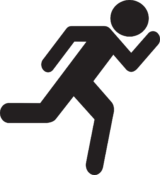The Future of Recovery: How Technology is Changing the Game
In today’s fast-paced world, the intersection of technology and recovery is not just a possibility—it’s a reality. Whether you’re recovering from physical injuries, mental health challenges, or addiction, technology is playing a pivotal role in reshaping the landscape. Join me as we explore how innovative tech solutions are transforming recovery processes, making them more effective and accessible than ever before.
Table of Contents
1. Physical Recovery: Wearable Tech & Apps
2. Mental Health Support: Virtual Therapy & AI
3. Addiction Recovery: Online Communities & Tools
4. Conclusion: Embracing Tech for a Better Tomorrow
5. FAQ
Physical Recovery: Wearable Tech & Apps
Remember the days when recovering from an injury meant just a bunch of doctor visits and some paper instructions? Those days are long gone! 🎉 Wearable technology like smartwatches and fitness trackers are now game-changers in physical recovery. These devices monitor heart rate, track steps, and even remind you to stretch, ensuring that you’re on the right path to recovery.
Moreover, recovery apps are at your fingertips, offering personalized exercise routines and real-time feedback. Whether it’s recovering from a marathon or surgery, these digital companions are your new best friends, ensuring you’re never alone in your journey.
Mental Health Support: Virtual Therapy & AI
Mental health recovery has its own share of tech innovations. Virtual therapy sessions via video calls have made mental health support more accessible, especially for those living in remote areas or with busy schedules. 🧘♀️
AI-driven chatbots are another revolutionary tool, providing 24/7 support and guidance. While they don’t replace professional therapists, they offer immediate support for those in need, helping bridge the gap until a professional can step in. It’s like having a supportive friend in your pocket, ready to listen and help.
Addiction Recovery: Online Communities & Tools
For those battling addiction, technology offers a lifeline. Online support communities have blossomed, offering a sense of belonging and understanding that can be crucial in recovery. 🌟
There are also numerous apps designed to help track sobriety milestones, offer motivational messages, and connect users with counselors. These tools provide the structure and support needed to navigate the challenging path of addiction recovery.
Conclusion: Embracing Tech for a Better Tomorrow
The future of recovery is undeniably intertwined with technology. By embracing these advancements, we’re opening doors to more personalized, accessible, and effective recovery strategies. Whether it’s through a smartwatch, a virtual therapy session, or an online support group, tech is here to support you every step of the way. So, why not embrace it and make your recovery journey a little less daunting and a lot more empowering?
FAQ
1. How do wearable devices assist in physical recovery?
Wearable devices track vital health metrics, remind users of exercises, and monitor progress, helping ensure a steady and informed recovery process.
2. Can virtual therapy really replace face-to-face sessions?
While virtual therapy offers convenience and accessibility, it complements rather than replaces in-person sessions, especially for those who need immediate support.
3. Are online support groups effective for addiction recovery?
Yes, they provide community support, shared experiences, and a sense of belonging that can be crucial for sustained recovery.
4. What role does AI play in mental health support?
AI chatbots offer immediate, round-the-clock support, helping users manage their mental health until they can access professional services.
5. Is technology in recovery accessible to everyone?
While technology is becoming more widespread, efforts are ongoing to make these solutions accessible to all, regardless of socioeconomic status or location.
